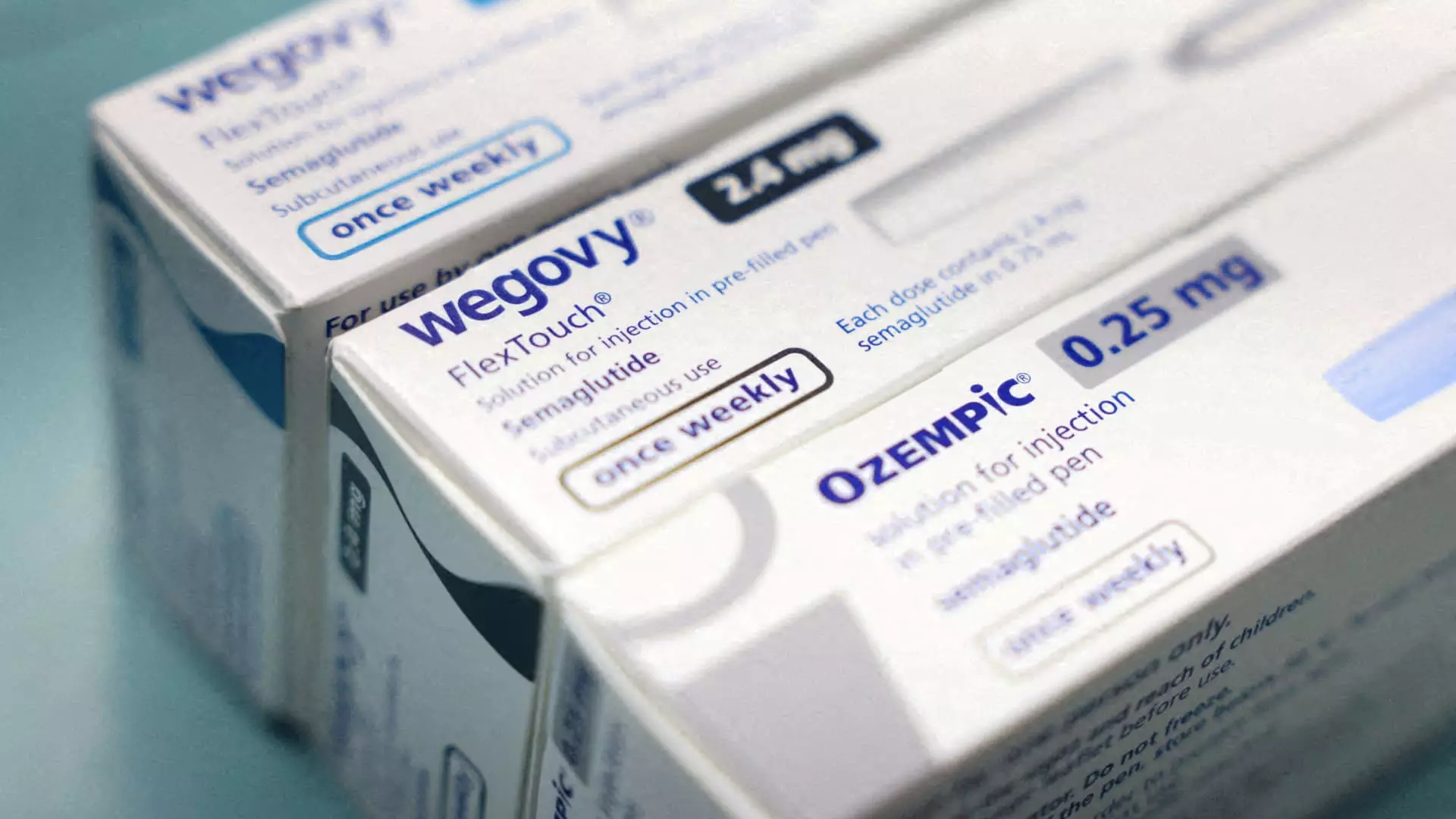In a significant development for the U.S. healthcare landscape, the Food and Drug Administration (FDA) has announced the resolution of a prolonged shortage affecting Novo Nordisk’s noteworthy medications: the weight loss injection Wegovy and the diabetes treatment Ozempic. After two years of waiting, patients who have relied on these therapies can now expect a more consistent supply. This news comes as a relief to many, particularly following the spike in demand due to rising obesity rates and the increasing prevalence of diabetes.
The FDA’s recent decision impacts not just the patients who use these medications but also the broader pharmaceutical market. Compounding pharmacies, which have filled the gap by creating unlicensed versions of these drugs, will soon face limitations as the production capacity of Novo Nordisk stabilizes. The announcement spells a potential downturn for the compounding industry, as it effectively curtails the illegal production of semaglutide, thus highlighting the complexities of managing drug shortages within the supply chain.
The stock market reacted predictably to the FDA’s announcement. Novo Nordisk’s shares rose approximately 5%, a testament to investor confidence in the company’s restored capability to meet demand. In contrast, Hims & Hers, a telehealth company that had capitalized on the shortage by offering compounded versions of these medications, witnessed a dramatic decline in its stock—plummeting nearly 25%. This dichotomy underscores how rapidly the pharmaceutical landscape can shift based on regulatory developments and supply dynamics. Furthermore, the resurgence of Novo Nordisk’s products may allow it to reclaim its position in a highly competitive market, particularly against rivals such as Eli Lilly, which also offers similar treatments.
Despite the declaration that the supply shortage has ended, the FDA cautioned that some disruptions may still occur on a localized basis. As these medications make their way through the distribution channels to pharmacies, sporadic and limited shortages can still present challenges. This acknowledges the ongoing realities of pharmaceutical logistics—stemming from production delays or unforeseen demand surges. These fluctuations can create uncertainty for both healthcare providers and patients who rely heavily on these therapies for chronic conditions.
The complexity of drug manufacturing and distribution is a reminder of the intricate web connecting pharmaceutical companies, regulatory bodies, and patients. Streamlined supply chains and resilient manufacturing processes are paramount to ensuring that medications remain accessible to those who need them, particularly as the demand for diabetes and obesity treatments grows in the face of an expanding global health epidemic.
The FDA’s statement also delves into safety concerns associated with unapproved compounded versions of semaglutide. Novo Nordisk’s executive vice president emphasized the inherent risks in accessing fake or illegitimate drugs—a very real threat in a landscape where patients, driven by urgency and misinformation, may unknowingly jeopardize their health. As the resolution of the shortage reinstates the legitimacy of the FDA-approved semaglutide medications, it serves as a reminder of the importance of adhering to regulated medical options to ensure patient safety.
This announcement is timely, especially in light of the growing market for weight loss and obesity treatments, projected to surge to an astonishing $150 billion annually by 2030. With robust investments in production capacity, both Novo Nordisk and Eli Lilly are poised to compete vigorously in this expanding arena.
While the FDA’s announcement signifies a critical transition in the availability of semaglutide-based medications, it also brings to light the broader implications for patients and the pharmaceutical sector. As compounding pharmacies withdraw from creating unapproved versions, patients must remain vigilant about their treatment options, ensuring they utilize reliable sources for their medications. The FDA’s involvement remains crucial in regulating the pharmaceutical landscape, protecting patient health, and fostering competition in this evolving market.
Ultimately, with a promise of more reliable access to effective treatments, the stage is set for Novo Nordisk to expand its market share and innovation in addressing weight loss and diabetes—while underpinning the paramount importance of safety and compliance within pharmaceutical practices.

